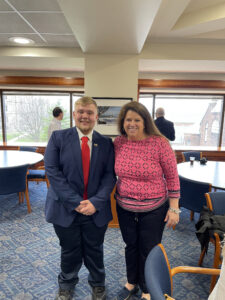The “digital transformation” of K-12 education is accelerating! Curricula vendors now have digitized offerings which allow curricula to be consumed on tablets, PCs and other electronic devices, and mercifully eliminates the need for children to carry a bag full of books! Typically, paper based curricula have simply been scanned to a digital file, and, perhaps, augmented with online videos. However, as these digitized curricula have not substantively changed how students’ learn no significant improvements in learning outcomes have been observed.
Driven by the belief that every child, from entry into school, is entitled to experience success via a high quality educational experience regardless of the financial circumstances of their school district, the University of Michigan’s Center for Digital Curricula (UMich.CDC) is perfectly positioned to disrupt the “digitized” curricula development and consumption model. Created by two university professors who have dedicated their careers to understanding “teaching and learning,” and tirelessly studying how technology can be used to improve those activities, the UMich.CDC’s next-generation learning environment, the Collabrify Roadmap Platform, brings deeply-digital, highly-interactive, curricula to life. Collabrify Roadmaps are visual lesson plans where a learner can literally see where their learning starts, where it ends and all the stops (learning activities) along the way. (See attached “Roadmap Lesson.”) The highly-interactive tools in the platform, such as Collabrify MediaWriter and Collabrify Flipbook, improve lessons by enabling learners to construct artifacts and in so doing, manipulate audio, video, animations, and images as easily as they manipulate text. True to its name, the Collabrify Roadmap Platform readily enables student-student and student-teacher collaboration, whether students or teachers are face-to-face, remote or hybrid. For example, integrated into the Platform is Twilio’s Voice-over-IP service; with a simple tap on the phone icon in the Roadmap, a teacher or learner in the classroom to can talk through the computer and collaborate with a student at home. Collabrify Roadmaps support how the Alpha Generation children learn and enable teachers to truly mentor their students and not just monitor them.



